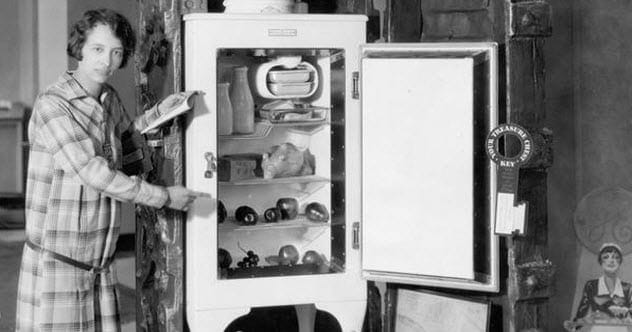It’s funny how hindsight is always 20/20, isn’t it? We look back and wonder how anyone could have resisted ideas that made life easier, better, or faster. Yet, many modern conveniences we absolutely depend on today faced some serious pushback when they first appeared. Get ready to be surprised by the unbelievable resistance some of the most brilliant inventions and innovations had to overcome!
10. Vaccinations: A Shot in the Dark for Some
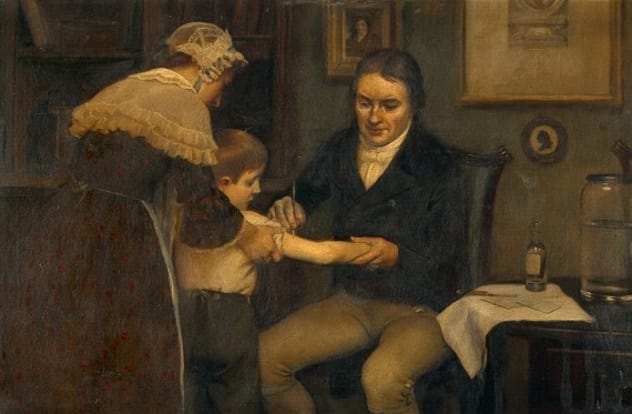
Believe it or not, the debate around vaccines is centuries old. Long before “anti-vaxxers” became a term, people called “antivaccinationists” were raising concerns. This has been happening for much longer than recent health crises. Even though vaccines are hailed as a massive public health win, saving millions of lives, opposition has been around since their earliest days. For instance, the smallpox vaccine faced strong resistance in the U.S. and England back in the mid to late 1800s. This led to anti-vaccination groups forming. A lot of this fuss likely boils down to a fear of the new and a simple lack of trust.
9. Birthday Parties: Character Assassins?

Can you imagine a world where birthday parties were seen as harmful? Well, according to a 1913 edition of Ladies’ Home Journal, that was exactly the case! The magazine argued that children’s birthday parties could mess with their “moral nature” and damage their character. They also fretted about the health risks, suggesting that the mix of treats served could upset a child’s system. It sounds dramatic, but they genuinely worried about “sowing dangerous seeds” for a child’s future. My, how times have changed! Our modern cake smashes for one-year-olds would probably have given those ladies a heart attack.
8. The Bicycle: A Crippling Contraption
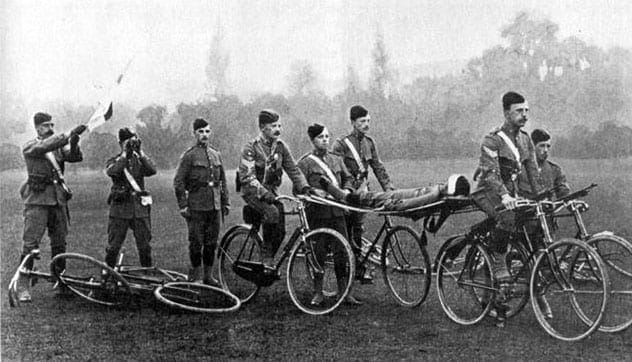
In Victorian times, doctors had some wild ideas about bicycles, especially for women. They pushed a strange kind of pseudoscience, claiming cycling could ruin a woman’s walk, turning it into a “plunging kind of motion.” They even feared it could wear down a person’s body to the bone, leading to conditions like “bicycle foot” and “bicycle hand.” And get this: they thought the wind and effort could cause a permanent condition called “bicycle face”! For women, the exertion was thought to make their delicate frames too masculine. These doctors clearly missed the memo on the benefits of exercise.
7. The Refrigerator: Colder Than a Car Payment
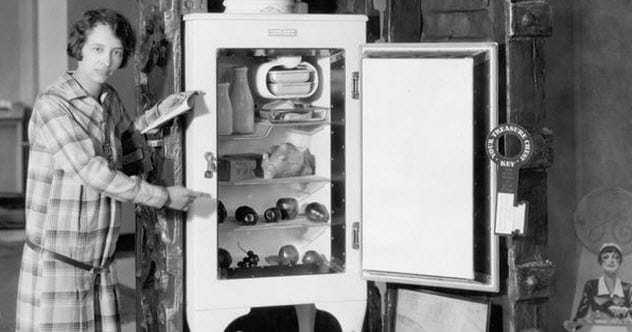
Picture this: it’s 1920, and you’re deciding between a new refrigerator or a new car. Sounds like a strange choice, right? Back then, a Ford Model-T cost about $260. That was a chunk of change when people made around $2,000 a year, but it was doable. A Frigidaire refrigerator, however, would set you back nearly $450 – almost double the price of a car! Imagine spending nearly twice as much on a fridge as a car today. Initially, ice harvesters and businessmen in that industry weren’t thrilled about mechanical refrigeration. But you can bet they all ended up with a fridge in their kitchens eventually.
6. Coffee: The Devil’s Brew
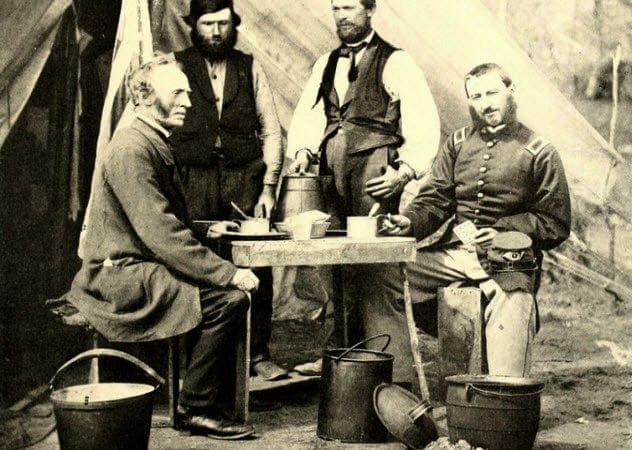
When you think of coffee, you probably picture a cozy morning routine. But for Pope Clement VIII in the 16th century, it was a bit more complicated. Coffee was hugely popular in the Ottoman Empire. Because it was enjoyed in the Islamic world, some Roman Catholics and Christians called it “Satan’s Drink.” Legend has it that when coffee finally reached Rome, Pope Clement VIII was urged to ban it. Instead, he decided to try it first. After sipping a steaming cup, he supposedly said, “This Satan’s drink is so delicious that it would be a pity to let the infidels have exclusive use of it.” He then gave it his blessing, and the rest is history!
5. Taxis: One Man’s Necessary Revolt
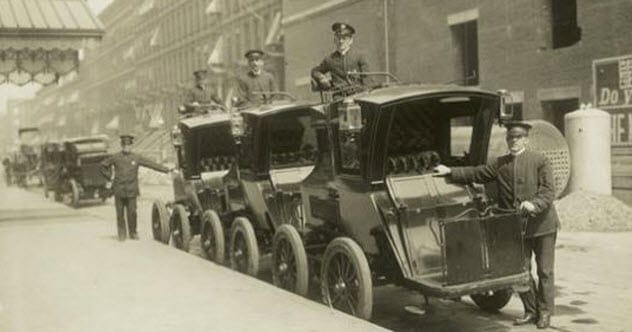
The iconic New York City taxi has a rather rebellious origin story. In 1907, a man named Harry N. Allen got hit with a $5 fare (about $130 today!) for a short ride in a horse-drawn cab. Understandably annoyed, Allen decided to fight back. He started the New York Taxicab Company. He had 65 gas-powered French cars shipped over. Initially, they were painted green and red, but these colors were hard to spot. Soon, they were painted their famous bright yellow, making them visible from afar. And just like that, an NYC legend was born out of one man’s resistance to being ripped off.
4. The Umbrella: A Persecuted Protector

Jonas Hanway was the first English gent to brave the streets of London with an umbrella, or “brolly” as they say. While both men and women used umbrellas in France (where the folding version was invented), in Britain, they were considered very feminine. So, when Hanway appeared with his, people jeered and taunted him, calling him “effeminate” and even “Frenchie”—a big insult in 17th century England! Cab drivers, worried they’d lose customers in the rain if umbrellas caught on, even threw rotten fruit at him. Despite the persecution, Hanway persisted, and thank goodness he did!
3. The Airplane: Just a Toy?

In 1911, a highly influential figure made a rather shortsighted comment: “Airplanes are interesting scientific toys, but they are of no military value.” The surprising part? This statement came from Ferdinand Foch, a French general and an Allied commander during World War I! It’s baffling how he couldn’t see the potential of a flying machine, at least for things like scouting. The Wright Brothers had already been making headlines with successful flights for eight years by then. Just eight years after Foch’s comment, a seaplane made the first successful Atlantic crossing. Talk about missing the mark!
2. The Laptop: Dead on Arrival?
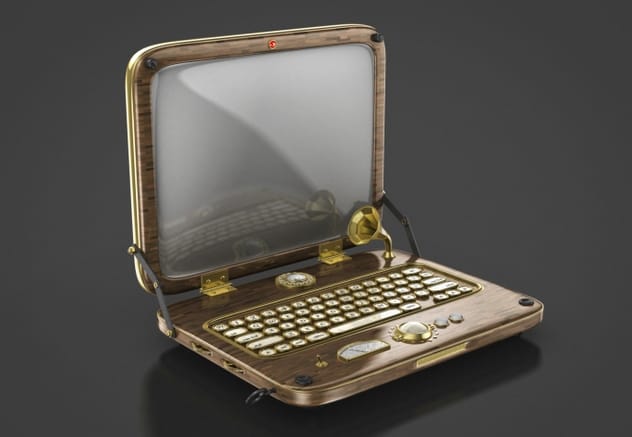
“Laptops Are Dead—Or Will Die.” That could have been a headline in the New York Times around 1985, at least according to some tech writers. They predicted laptops would flop for a couple of reasons. First, they thought laptops would be too expensive to build. Second, they believed nobody would actually want a portable computer. One critic famously said they couldn’t imagine “the average user taking one along when going fishing.” To be fair, the World Wide Web, internet, and WiFi weren’t common back then, so our current digital world was hard to foresee. Still, it’s a classic case of underestimating technological progress.
1. The Light Bulb: Not Bright Enough for Britain

In 1878, the British Parliament set up a committee to look into Thomas Edison’s newfangled idea: the incandescent lamp. Their final verdict on what would become the world-famous light bulb? They deemed it “good enough for our Transatlantic friends, but unworthy of the attention of practical or scientific men.” Perhaps they meant “English scientific men.” It seems they didn’t quite see the bright future Edison’s invention would illuminate. Maybe if they’d given it a proper try, they would have seen things in a, well, better light!
It’s clear that even the most revolutionary ideas can face a tough crowd. These stories show us that innovation often requires not just brilliance, but also a healthy dose of persistence to overcome initial skepticism. What we take for granted today often had a surprisingly rocky start!
Which of these surprised you the most? Or do you know of another modern convenience that people initially resisted? Leave your comment below!


